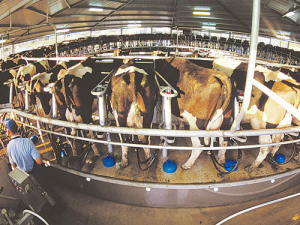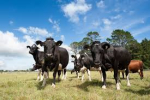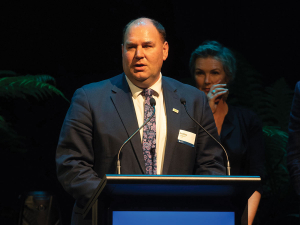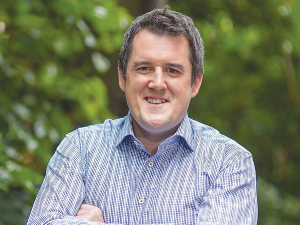Maximising milking efficiency need not compromise animal health. In fact, many improvements to milking efficiency also help to improve udder health and milk quality.
The bacteria that cause mastitis come from the environment or are spread from other cows via the milking cups.
Teat spray is a critical step in mastitis control to kill bacteria and maintain good healthy teats, which removes places for bacteria to grow. When teat spraying, ensure teat spray covers all teat surfaces, as well as the tip, and uses 15-20ml/cow per application.
Teats with dry skin or teat end damage are early indicators of problems. Teat scoring 50 cows once a month is practical and achievable, to monitor progress as you make changes to improve milking efficiency. Seek expert help if more than 10% of cows have dry teat skin or 20% have rough teat ends.
Damaged teat ends harbour more bacteria. Removing cups early leaves some residual milk, which is harvested more efficiently at the next milking, with less risk of teat end damage and no increase in mastitis. So it’s OK to remove cups in the dribble phase and save time spent waiting for slow milking cows. Apply cup removal techniques that reduce risk of mastitis, e.g. break, twist and release, close to cluster.
Teats must be disinfected before any intramammary treatment.
If you are using teat wipes, open the wipe out and scrub the teat from underneath using your thumb and moving across the wipe to a progressively cleaner area until the wipe comes away clean. Several wipes per teat may be needed.
Good signs
Signs that milking is operating efficiently include:
- Time spent waiting for slow cows to finish milking is minimised
- Cups are being removed using techniques that reduce risk of mastitis
- Teat spray is applied effectively and efficiently.
• Article sourced from DairyNZ











